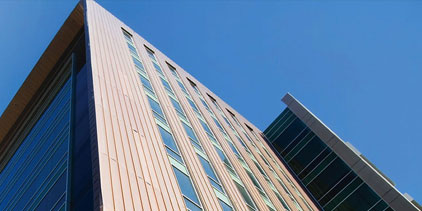Research: Embedding sustainability within UCEM. Guest blog by our Research Assistant – Education & Sustainability, Dr Renuka Thakore
Posted on: 2020-10-08
Our Research Assistant – Education & Sustainability, Dr Renuka Thakore, and Director of Research, Innovation and Partnerships, Aled Williams, recently presented on behalf of UCEM at the Associated Schools of Construction 2020 Virtual Conference. Their presentation was focused on Education for Sustainable Development (ESD) and here, Renuka provides an overview of their research outcomes…

- Higher Education Institutions are increasingly challenged to integrate the values inherent in sustainable development into all aspects of learning and simultaneously encourage changes in behaviour that allow for a more sustainable and just society for all in terms of environmental integrity, economic viability and a just society for present and future generations.
- Although a solid foundation has been laid for ‘Education for Sustainable Development (ESD)’ through a ‘Decade of Education for Sustainable Development (DESD) (2005-2014)’, there is limited research looking into the ways in which ESD can be embedding sustainability into all aspects of the learning environment.
- Scholarly research has highlighted that an institution-wide collaborative approach is the best means of embedding sustainability in curriculum and learning processes, facilities and operations, interaction with the surrounding community, governance, and capacity-building.
Drawing upon the principles of evidence-informed research, and following document analysis research methodology, Aled and I drew upon UCEM policy documents such as strategic plans, student and staff survey reports and periodic review reports of modules and courses, in order to understand the underlying intentions and identify contribution of ESD to different empirical themes such as education, research, operations and extension.
Education
Preliminary analysis of key findings suggest strategic, tactical and operational changes in ‘Education’ involved incorporating principles of ESD in Learning, Teaching and Assessment (LTA) strategy, developing partnerships with students and accreditation bodies such as NUS and formation of a staff and student Responsible Futures Working Group (RFWG), and assessing contents of the undergraduate and postgraduate courses against the four aspects of sustainability literacy identified by HEA/QAA, is capable of generating a high level of understanding and engaging with Social Responsibility and Sustainability (SRS) by colleagues and students.
Research
‘Research’ performance is exemplary, buoyed by a strategy of enhancing research capability internally and externally. Two research centres, the Online Learning Research Centre (OLRC) and the Property and Construction Research Centre (PCRC), focused on the key strengths of UCEM research staff contributing to the strategic research vision. The research areas include online learning, sustainability, real estate, heritage, conservation and adaptation, and sustainable and innovative construction. In addition to this, a resource combining sustainable construction and gamification called ‘ECO Materials Trumps Digital Cards Game’ implemented the practical application of research- informed knowledge in an enjoyable and innovative way. Evidence-based case studies are also shared through module coursework and widely represented in professional events.
Operations
UCEM’s ‘operations’ are strategically guided by the Corporate Social Responsibility (CSR) Statement and Human Resources (HR) Policy on Voluntary and Charity Work. At tactical level, a SMART [specific, measurable, attainable, relevant, time-bound] plan, endorsed by the Senior Leadership Team and led by Sustainability Champions has been developed. The assessment of the activities using a RAG (Red, Amber and Green) rating provides a useful method to keep track with the progress and measure success. Several activities such as a ‘show and tell’ workshop, the curriculum audit/staff survey to induce deeper dialogue on how to move forward and sustainability implementation plans led by the Sustainability Working Group have contributed significantly to UCEM operations. Equally important, UCEM operates from its Horizons HQ which achieved a BREEAM ‘Excellent’ rating in August 2016 and a Green Apple Gold Award in 2017.
Extension
UCEM has a long tradition in extensions – engaging with the local community. Fundraising work for charities, voluntary, organisational or community projects; environmental work and conservation projects; and community care work, all are encouraged by UCEM. All employees are offered one day’s paid leave per calendar year to undertake volunteering work as part of the UCEM commitment to these policies. In 2019, Centenary celebrations took place and four volunteering events took place to mark and share the celebration within the community. UCEM also took part in exchange visits that occurred with other UK universities to share and disseminate best practice.
UCEM’s leadership in sustainability journey, evidenced by its NUS Responsible Futures accreditation, contributes to a new approach to ESD. This is in association with putting sustainability at the heart of its curriculum which support’s the ‘Learning to live together sustainably by 2030’ UN Sustainable Development Goal. Activities such as embedding sustainability in its learning resources, creating sustainability awareness in staff and students, adopting environmental management and sustainability practices in its building operations, and extending research and engagement with students, staff and the wider community, have increased UCEM’s capacity to be accountable to society for both its actions and its achievements.
To find out more about Renuka and Aled’s research, read the blurb and watch their conference presentation.

